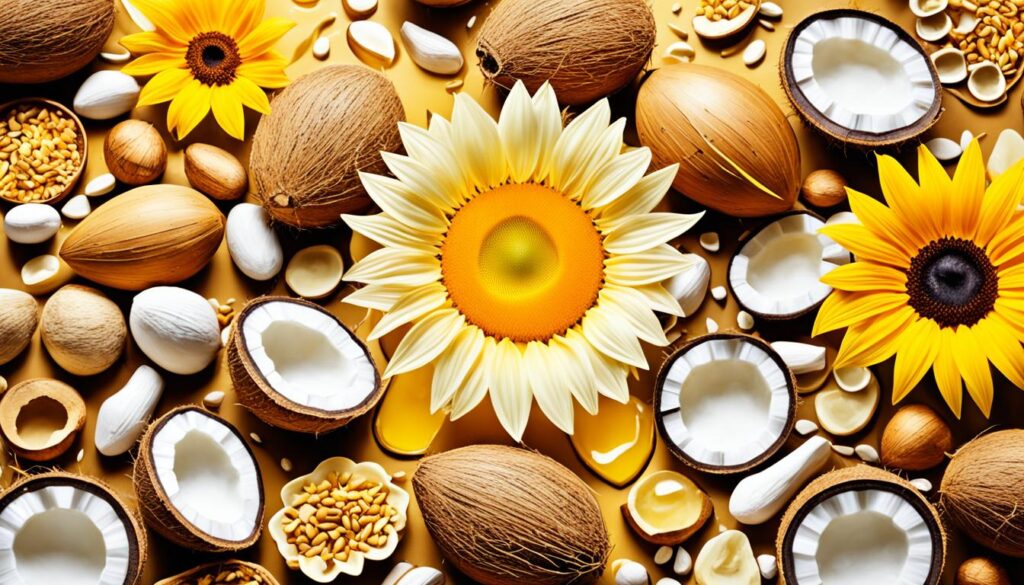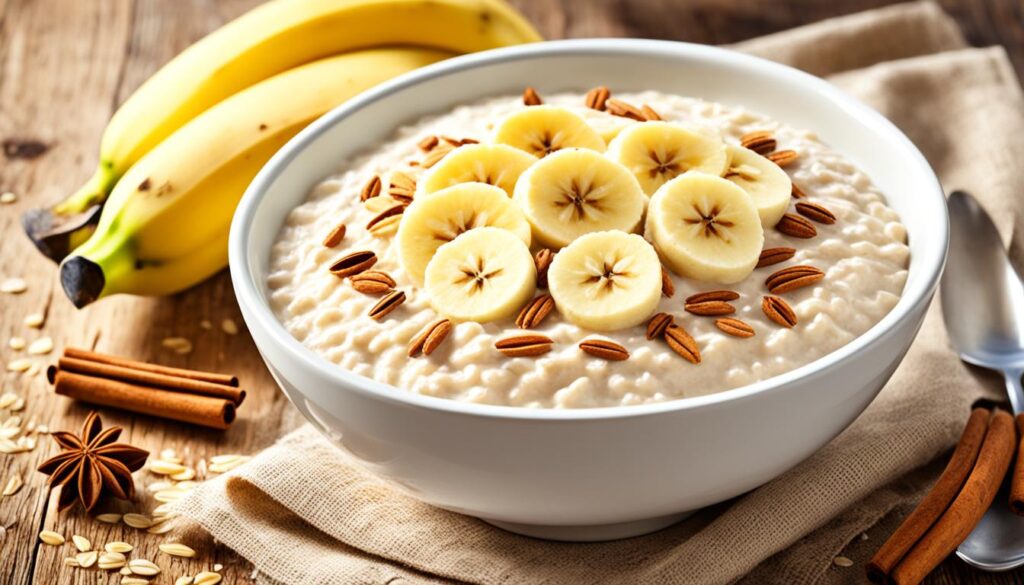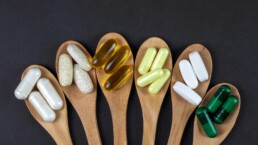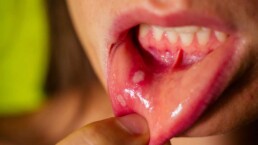Dealing with dry, flaky skin can be really tough. But, there are many natural ways to fix it. We’ll look at home remedies to make your skin moist, calm irritation, and get it back to glowing.
Table of Contents
ToggleKey Takeaways
- Discover natural moisturizing oils like sunflower seed oil and coconut oil to hydrate dry skin.
- Learn about the benefits of using oatmeal baths and masks to soothe and calm dry, irritated skin.
- Explore the role of dietary nutrients like milk, phospholipids, antioxidants, and omega-3s in supporting healthy skin.
- Understand the benefits of honey, petroleum jelly, and aloe vera for providing relief and protection for dry skin.
- Discover tips for preventing dry skin by avoiding triggers and adjusting your shower routine.
Introduction to Dry Skin and Home Remedies
Do you struggle with dry, flaky, and itchy skin? You’re not alone. Dry skin, or xerosis, is a common issue. It happens when the skin lacks moisture, leading to dryness.
If not treated, it can cause cracks, irritation, and infections.
Definition of Dry Skin
Dry skin happens when the skin doesn’t make enough oil. This can be due to harsh products, the environment, or certain health issues. The definition of dry skin is about lacking moisture and the symptoms it brings.
Benefits of Using Home Remedies
Store-bought treatments can be pricey and not always work well. But, home remedies for dry skin are natural and affordable. They often have fewer harsh chemicals, making them great for sensitive skin.
Using these remedies can improve hydration, reduce inflammation, and strengthen the skin. By knowing about dry skin and home remedies, you can fight this common issue. This leads to healthier, glowing skin.
Moisturizing Oils for Dry Skin
For dry, parched skin, some natural oils can really help. Sunflower seed oil and coconut oil are great choices. They can make your skin soft and glowing again.
Sunflower Seed Oil: A Skin Hydration Hero
Sunflower seed oil is a top pick for moisturizing. Studies show it boosts skin hydration and health. It’s perfect for dry, dehydrated skin.
Coconut Oil: A Versatile Skin Savior
Coconut oil is another excellent choice for dry skin. It’s as good as petroleum jelly in treating dry, flaky skin. Coconut oil’s fatty acids fill in gaps and smooth out rough skin.
Choosing sunflower seed oil or coconut oil can change how you fight dryness. Adding these natural moisturizing oils to your routine can bring back your skin’s natural glow.

Natural Ingredients for Soothing Dry Skin
If you’re dealing with dry, irritated skin, you’ll find relief in nature’s remedies. Oatmeal is a great option. It’s known for soothing and hydrating dry skin.
Oatmeal Baths and Masks
Adding oatmeal for dry skin to your bath makes for a relaxing soak. Oatmeal’s compounds fight inflammation and act as antioxidants. This helps calm and revitalize dry skin. For a focused treatment, mix oatmeal with water or milk for an oatmeal mask for dry skin.
Apply this mixture to your face and let it work for 10-15 minutes. It deeply hydrates and soothes your skin.
Choosing an oatmeal bath for dry skin or a mask can change how you fight dry, uncomfortable skin. Try it and see the natural healing oatmeal can do.

Home Remedies for Dry Skin: Natural Hydration and Care
Keeping your skin hydrated can be tough, especially when it’s cold and dry outside. Luckily, there are many home remedies for dry skin that can help. These natural solutions can make your skin soft and supple without harsh chemicals.
Ingredients like argan and almond oils, oatmeal, honey, and aloe vera are great for dry skin. They soothe irritation, keep moisture in, and give you a healthy glow. Adding these to your daily skincare can help your skin get the hydration it needs.

If you have dry, flaky skin or constant dryness, these remedies can help. Try different mixes of these natural ingredients to find what works best for you. With some trial and error, you can say goodbye to dry skin and hello to a glowing complexion.
Dietary Recommendations for Dry Skin
Your diet can greatly affect your dry skin. Some nutrients and foods can make your skin more hydrated and less dry. Here are some dietary tips that might help with dry skin.
Milk and Phospholipids
Studies show that milk’s phospholipids can improve your skin’s barrier and hydration. Adding milk and dairy to your meals can moisturize dry skin from the inside.
Antioxidants and Omega-3s
Eating foods high in antioxidants like blueberries, tomatoes, and bell peppers can protect your skin from dryness. Omega-3s in salmon, walnuts, and beans help keep your skin healthy and reduce inflammation.

Adding these foods to your diet can help keep your skin’s moisture levels up. A balanced diet with fruits, veggies, and healthy fats is key to fighting dry skin.
Honey: A Sweet Solution for Dry Skin
If you’re dealing with dry, irritated skin, think about adding honey to your skincare routine. This sweet ingredient has been a natural remedy for centuries. It’s especially good for dry skin.
Honey pulls and keeps moisture in the skin, making it a great natural skin moisturizer. It also calms redness and irritation, perfect for dry, sensitive skin.
Honey does more than just moisturize. It fights bacteria and helps heal small skin irritations. Putting a thin honey layer on dry skin can nourish and fix it.
Here are ways to use honey for dry skin:
- Put raw honey on dry spots on your face or body for 10-15 minutes, then rinse.
- Blend honey with avocado, oatmeal, or coconut oil for a homemade face mask.
- Drop honey into your daily moisturizer or face oil for extra moisture.
For the best results, use pure, high-quality honey. This ensures you get all the benefits. Regular use can make dry, flaky skin soft and supple.

Petroleum Jelly and Mineral Oils
Petroleum jelly and mineral oils are great for keeping skin soft and supple. They are known for their moisturizing effects, making them a go-to for dry, irritated skin. Studies show that petroleum jelly can even make the skin’s barrier stronger, especially for older people, proving its worth in treating dry skin.
Petroleum jelly forms a protective layer on the skin, keeping moisture in and helping dry areas heal and stay hydrated. This barrier keeps the skin’s natural oils from evaporating, so your skin doesn’t feel dry and uncomfortable. Mineral oils are light and soak in quickly, offering a gentle way to moisturize dry skin.
Choosing petroleum jelly for dry skin or mineral oils for dry skin can really change your skincare game. These natural options lock in moisture and calm irritated skin, leading to a soft, glowing complexion you’ll love.
Aloe Vera Gel: A Soothing Treatment
If you’re dealing with dry, irritated skin, you might find the answer in your own garden. Aloe vera gel is a natural option that can greatly benefit your skin. It’s known for soothing and moisturizing, making it a go-to for dry skin issues.
Using aloe vera for dry skin helps hydrate it. Studies show that it boosts moisture levels, easing dryness and flakiness. Its gel form also acts as a protective barrier, keeping moisture in and water out.
Aloe vera is packed with vitamins, minerals, and antioxidants. These elements nourish the skin and aid in cell regeneration. This makes it a top choice for dry skin relief.
For dry skin on hands or feet, try applying aloe vera gel and covering it with a sock or glove at night. This method takes advantage of aloe’s soothing and moisturizing effects. Adding aloe vera to your skincare routine can naturally hydrate and soothe dry skin.
Preventing Dry Skin: Tips and Tricks
Keeping your skin healthy and moisturized is more than just using home remedies. It’s key to know what can dry out your skin. This way, you can avoid those triggers and keep your skin moist.
Avoiding Triggers and Irritants
Steering clear of harsh products and environmental factors is crucial. Don’t use soaps or cleansers with drying agents like alcohol or sulfates. Also, try to avoid dry air from air conditioning, wind, or low humidity.
Adjusting Shower Temperature and Routine
How you bathe affects your skin’s moisture. Choose lukewarm water instead of hot showers. Also, keep showers short and apply moisturizer right after to lock in moisture.
Being aware of what causes dry skin and changing your shower habits can help. It’s about knowing your skin and making small changes daily. This way, you can keep your skin healthy and hydrated.
When to See a Dermatologist
Home remedies can help with dry skin, but sometimes you need a doctor’s advice. If your dry skin doesn’t get better with over-the-counter products and home care, see a dermatologist. Severe dry skin or conditions like redness, swelling, or pus need a dermatologist’s help.
Conditions like rosacea, psoriasis, or cystic acne can make dry skin worse. A dermatologist can manage these conditions to help with severe dry skin and chronic skin conditions.
Wondering if you should see a dermatologist? Look for these signs:
- Home remedies and over-the-counter products don’t help
- Your dry skin has redness, swelling, or pus
- You think you might have a skin condition like rosacea, psoriasis, or cystic acne
- Your dry skin bothers you or affects your daily life
If your dry skin isn’t getting better or you’re worried about your skin, don’t wait. See a dermatologist for a proper check-up and treatment plan. They can help with when to see a dermatologist for dry skin and chronic skin conditions.
Conclusion
In this article, we’ve looked at many home remedies for dry skin. You learned about using sunflower seed and coconut oils, oatmeal, honey, petroleum jelly, and aloe vera. These options are easy to find and can help your dry skin.
Also, eating foods like milk, phospholipids, antioxidants, and omega-3s can help your skin. By avoiding certain triggers and changing your shower habits, you can keep your skin from getting dry. If dry skin doesn’t go away, see a doctor for advice.
Home remedies are great, but sometimes you need a dermatologist’s help. They can give you specific advice and treatments if your skin is very dry or doesn’t get better. With the right mix of home remedies and doctor’s care, you can have healthy, moist, and glowing skin.
FAQ
What are the benefits of using home remedies for dry skin?
Home remedies for dry skin can make your skin more hydrated and reduce inflammation. They also strengthen the skin barrier. These remedies are often cheaper and have fewer harsh ingredients than commercial products.
What natural oils can effectively moisturize dry skin?
Sunflower seed oil and coconut oil are great for moisturizing dry skin. Coconut oil has fatty acids that fill in gaps in dry skin, making it smoother.
How can oatmeal help soothe and treat dry skin?
Oatmeal has ingredients that fight inflammation and protect against damage. Adding oatmeal to your bath or using oatmeal creams can ease dry skin symptoms.
How can dietary factors affect dry skin?
Eating milk can improve your skin’s barrier and hydration. Foods like blueberries, tomatoes, salmon, and beans are full of antioxidants and omega-3 fatty acids. These can help your skin stay healthy and fight dryness.
What are the benefits of using honey for dry skin?
Honey is good for dry, irritated skin because it moisturizes, heals, and reduces inflammation. Putting honey on your skin can make it feel better and stay hydrated.
How can petroleum jelly and mineral oils help with dry skin?
Petroleum jelly and mineral oils can make the skin barrier stronger, especially for older people. They create a protective layer that keeps moisture in, helping to heal and hydrate dry skin.
How can aloe vera gel be beneficial for dry skin?
Applying aloe vera gel can make dry skin feel better and stay hydrated. For dry skin on hands or feet, use aloe vera gel and cover it with a sock or glove at night to use its healing properties.
What steps can be taken to prevent dry skin from occurring?
To keep your skin from getting dry, avoid harsh soaps and extreme temperatures. Use lukewarm water and don’t take long showers. Applying moisturizer after bathing helps keep your skin healthy and prevents dryness.
When should one seek professional medical advice for dry skin?
If home remedies and over-the-counter products don’t help, or if your skin gets red, swells, or has pus, see a dermatologist. Some skin conditions like rosacea or psoriasis need a dermatologist’s care to manage dry skin.
Source Links

This article is medically reviewed by Dr. Chandril Chugh, Board-Certified Neurologist, providing expert insights and reliable health information.
Dr. Chandril Chugh is a U.S.-trained neurologist with over a decade of experience. Known for his compassionate care, he specializes in treating neurological conditions such as migraines, epilepsy, and Parkinson’s disease. Dr. Chugh is highly regarded for his patient-centered approach and dedication to providing personalized care.








